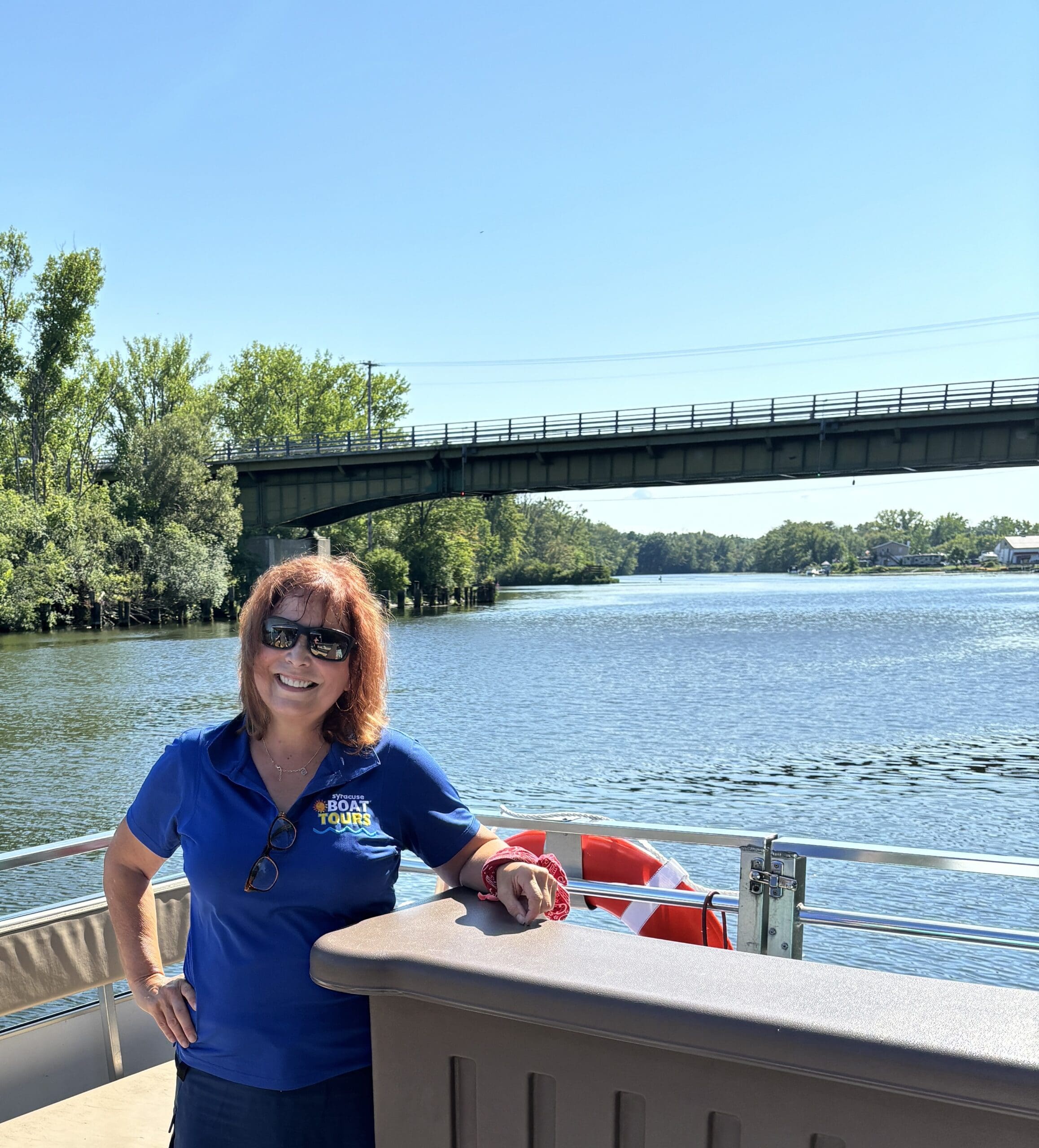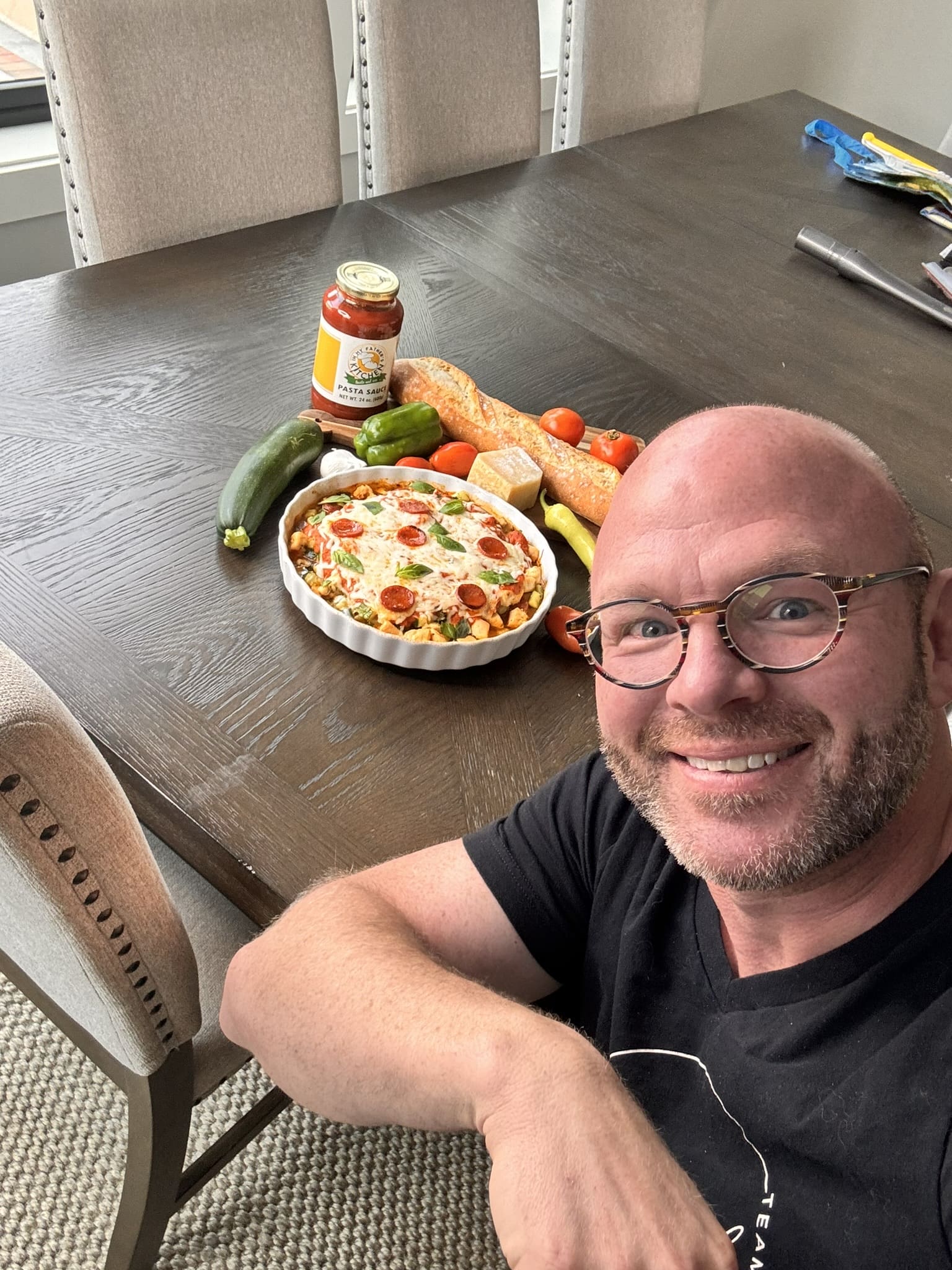Working Toward Democracy
By Lorna Oppedisano | Photography by Alexis Emm
InterFaith Works is striving to show Syracuse a new view of the world.
“We think that what we’re doing is creating an equity lens for our community,” president and CEO Beth Broadway said. “It teaches us how to look at the world with a bigger picture than just a small, narrow box of what our personal lives have been about.”
Founded in 1976 by a group of Central New York civic and faith leaders, InterFaith Works began as a means of dialogue and bridge building between disparate groups of people. As it’s evolved, the organization has grown to include a variety of human service programs. At its heart, the mission statement hasn’t drastically changed: InterFaith Works “affirms the dignity of each person and every faith community and works to create relationships and understanding among us.”
When InterFaith Works expanded, the first program added was the InterFaith Initiatives Program, a chaplaincy program that still serves county hospitals, nursing homes and correctional facilities.
Then, the organization added a senior services program and also began to focus on refugees. These programs continue today.
About 33 years ago, InterFaith Works added refugee resettlement to its programming, helping refugees during their first few months in the country, as well as providing wraparound services for the next few years, to ensure that new Americans become well-acclimated to their new homes and culture.
After 9/11, and the onset of Islamophobia, the need for InterFaith Works’ presence heightened, and the organization’s mission in this regard shifted slightly, Beth remembered.
There were fewer refugees being accepted into the U.S., and therefore fewer people to resettle. The importance of dialogue took centerstage. InterFaith Works began to do more work with the local Muslim mosques, connecting them with Jewish temples and Christian churches. It actually helped the organization grow.
“The agency began to really bourgeon with quite a variety of people who are involved in different kinds of faith traditions and spiritual traditions,” Beth said, citing InterFaith Work’s Round Table of Faith Leaders. The round table — a group of local faith leaders that’s met every month for 41 years — now includes representatives from 25 faiths.
With the current political climate and refugee crisis, InterFaith Works has an important role to play, Beth explained.
Right now, there are roughly 65 million people worldwide who have had to leave their homeland. About 21 million of those people are living in U.N.-protected refugee camps.
“They are people without a country,” Beth said. “They can’t go home to their country. There’s no ‘there’ to go back to. They can’t vote anywhere. They can’t be part of the world democracy project. They can’t. They just don’t have any place.”
These refugees are displaced for many reasons — terrorism, ethnic cleansing and famine to name a few.
Once in the camps, people can apply to go to another country. To be accepted into the U.S., one must undergo a 14-step vetting process that includes a variety of background checks, fingerprinting, medical exams and more.
Under the Obama administration, the U.S. agreed to take in 110,000 refugees in 2017. In the current administration, that number is now 50,000 per year.
For the size and needs of the U.S., that’s a small number, Beth said, adding that particularly for Syracuse, it’s likely to cause a decrease in overall population, with possible negative effects on the economy.
“So we see ourselves as being a much more trim organization in terms of the resettlement operation, and doing more with the wraparound services for refugees who are already here for the foreseeable future,” Beth said.
For InterFaith Works staffing, this means cuts. The organization had to layoff or reduce time for seven staff members in February, and may have to do more of that in the coming months, Beth said.
Across the board, for every group InterFaith Works helps, dialogue is an important piece.
Beth defined dialogue as more than simply an exchange of words. Rather, it’s a guided and structured conversation in a set period of time aimed at mediating conflict or lack of understanding.
Right now, InterFaith Works is holding a community-police dialogue, in response to the civil unrest in Ferguson, Mo., following the death of Michael Brown in 2014, and numerous other clashes between police and communities of color in recent years.
“The police officers and the community members who have been participating in this are saying they have never been in a conversation like this before,” she said, “because they’re touching on things that they have only talked about among themselves, never to each other.”
Beth called the conversation in dialogue “courageous.” People agree to stick it out for the long haul, and truly listen to an opinion they might not agree with, or even might find abrasive.
That’s what a democracy calls for, Beth explained, and InterFaith Works is going to continue working toward that goal.
“Anytime there’s a place where we can find divisions, where people really want to work on those divisions, we’re willing to set up and work with them to create that kind of a dialogue,” she said. SWM
For more information about InterFaith Works, visit interfaithworkscny.org.





